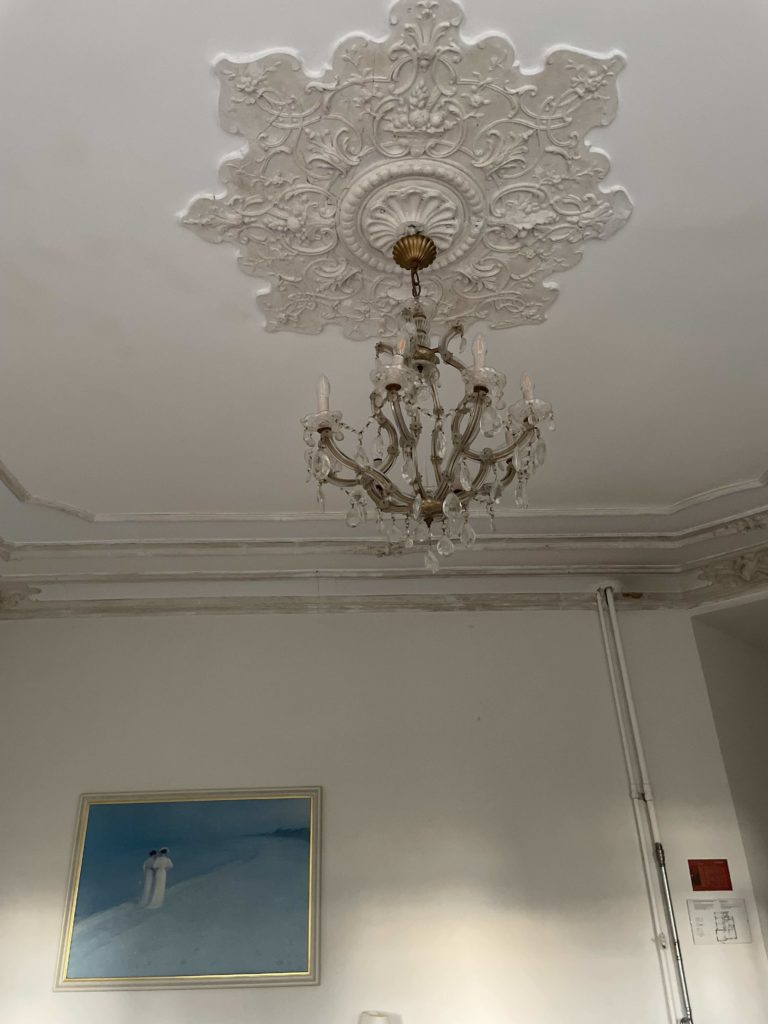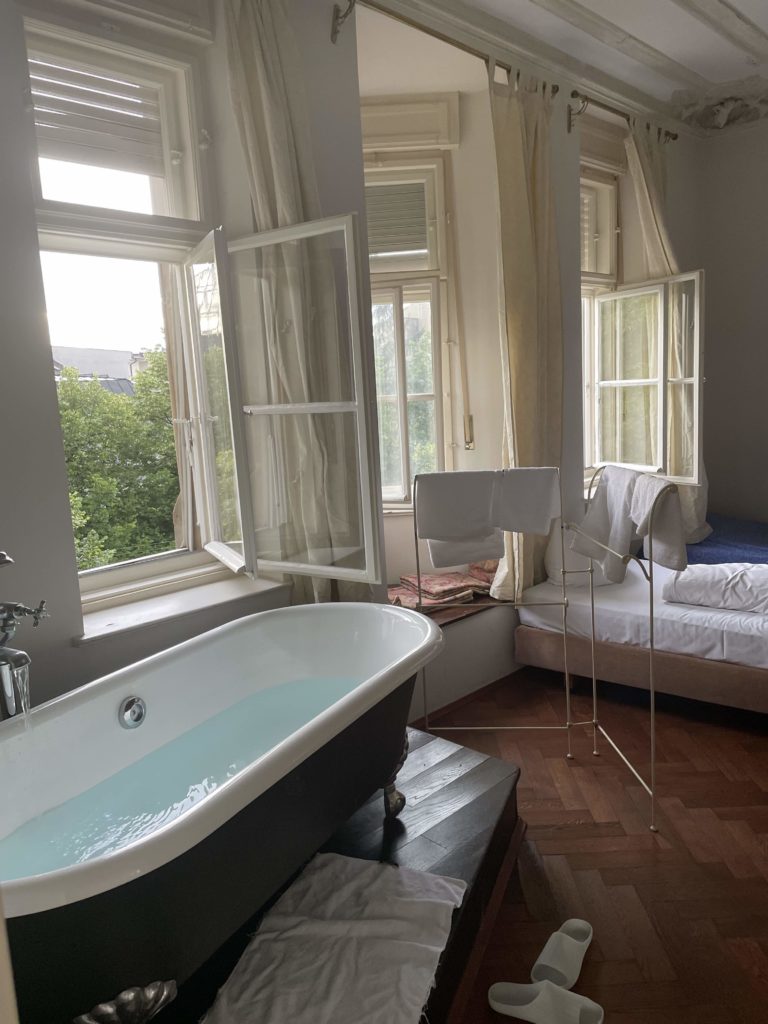…from Berlin, just after a stint with covid and a redistribution of my summer plans, I visited München, where I, as part of my publishing press TABLOID, had been invited for a small residency and exhibition in August, just following my German classes at Goethe Institute. I was to visit the institution in München to get a tour of the space and meet the curator.
I want to write a little about some of the visual and verbal differences between München and Berlin, which were immediately static and stark in their remove from each other. München lies in the western part of the country, in Bavaria/Bayern, and is known for its money and a capitalistic, aristocratic vibe. As I met with the curator and described my shock at the European-ness of the city, she mentioned that München was often called the “northernmost city of Italy.” Then she laughed and asked if that was the correct way to say it in English. She herself had lived in Berlin for many years, and München was likewise a strange, cultural shift for her — from the graffiti-laden streets in Berlin to manicured royal gardens (now available to the public, though previously guarded) — in which the art institution had, for 200 years, been housed.
I had arrived at the hotel after a 10 hour train ride from Berlin on the 9-Euro ticket, a new, nearly-free experimental ticket that includes country-wide public transportation and regional trains, and spans all three of the summer months of tourism. I was sweaty and still dazed by the recent sickness and the long transit. The room I checked into was intensely European, decked with an ornate moulding of cherubs in each corner of its ceiling, as well as a chandelier. A standing claw-foot tub, about which I gasped. Piano keys from the cafe downstairs rippled through the tall windows. I was flattered and shocked to be given such an aesthetic demonstration of care by any institution.


Walking through München in search of Essen, I immediately noticed a softer, wealthier atmosphere than what I experience most neighborhoods of Berlin — no graffiti, no music playing loudly in the Platz — and began to listen to people speaking German for cues on this shift. In the two days I spent there in that city, the phrase I heard the most was “Ich habe es eilig!” — I’m in a rush — at least four times that first night.
Interesting, already, to note that the speed and intention of the city was so different to Berlin, which holds more of a molecule of socialism at its core, so that less often present is that streak of individualism that seemed to be communicated by these rushing passersby. One had to do things in München. Berlin’s tempo, on the other hand, is relaxed in spirit, and the leisure does not always seem a product or result of wealth, but rather of an ethos. At the same time — Berlin is much dirtier as a city, its aesthetics don’t always impress a romantic American looking for the flair of European architecture… But much of it, of course, was destroyed in this country.
Meanwhile, bis nächste Woche — I’ll fill in more about my specific experience in Berlin, and comment on some of the classroom dynamics emerging between Western and Eastern Europeans and Americans in the loaded, muted atmosphere of an intermediate course.